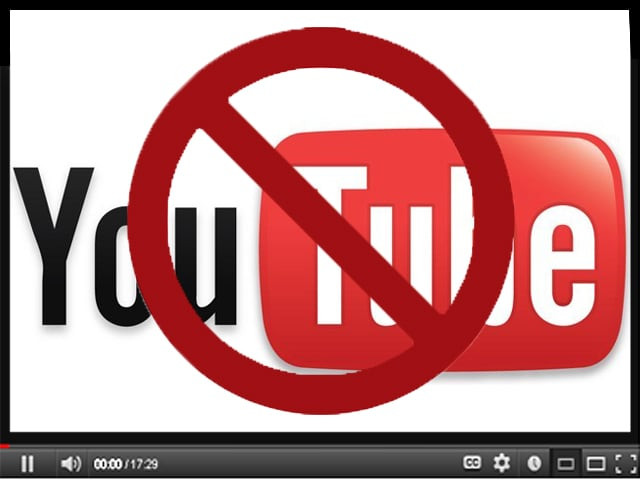YouTube ban: ‘Google considering appearing before LHC’
Ban denies Pakistanis chance to counter anti-Islam propaganda, says petitioner.

Taking away access to YouTube is the modern equivalent of taking away the scholar’s pen, says Petitioner’s counsel. PHOTO: FILE
The Lahore High Court on Thursday adjourned till June 6 the hearing of a petition challenging a ban on YouTube, the video-sharing website, on the request of the Ministry of Information Technology.
A lawyer representing the ministry told the court that the administration of Google, of which YouTube is a subsidiary, was considering whether it should appear before the court, so the proceeding should be adjourned.
YouTube was blocked across Pakistan on September 17, 2012, on the orders of then-prime minister Raja Pervez Ashraf. The PM had imposed the ban after YouTube refused the Pakistan government’s request to remove from the website a film deemed blasphemous by Muslims.
At the previous hearing, Justice Mansoor Ali Shah had sought the ministry’s assistance and also directed it to approach the Google administration and seek their point of view.
At a previous hearing, a deputy attorney general had told the court that the federal government was willing to lift the ban but the blasphemous film was still available on the website.

Advocate Yasser Latif Hamdani, representing petitioner Bytes for All, submitted that all internet curbs were counterproductive and deprived Pakistanis of the right to access information as well as the right to counter propaganda against the country or against their beliefs. He said that taking away access to YouTube was the modern equivalent of taking away the scholar’s pen.
In a statement, Hamdani said Islam had a tradition of free speech, discourse and toleration that went back 14 centuries. “We should not abandon that tradition now when we need our best and the brightest to defend, counter and clarify the misconceptions about our great faith,” he said.
He stated that while efforts were underway to find a middle ground between internet freedom and offensive materials, ultimately all curbs would hurt Pakistan more than those engaging in “scurrilous and offensive rhetoric”. Pakistani students, teachers and researchers had been deprived of a great resource of knowledge. The ban hurt the material progress of Pakistanis, most of whom are Muslims.
He said the Pakistan Telecommunication Authority had falsely claimed that it could not ban individual URLs. “The recent ban on Beghairat Brigade’s video on vimeo.com shows that individual HTTPS URLs can be easily blocked,” he said. He was of the view that the across-the-board blockage of YouTube, therefore, was unjustified.
Hamdani asked the court to declare the ban illegal and issue directions to restore access to it.
Published in The Express Tribune, May 17th, 2013.


















COMMENTS
Comments are moderated and generally will be posted if they are on-topic and not abusive.
For more information, please see our Comments FAQ